Worried that your kid isn’t scoring straight ‘A’s in school? Concerned that she isn’t going to succeed if she fail to get into the Gifted Education Programme (GEP)?
Well, it is time to banish the fear!
Rather than pure academic achievements, experts tell us that success is determined by many other factors.
One such theory focuses on helping kids to develop their Multiple Intelligences (MI). Developed by Howard Gardner, it states that there are eight different abilities or “intelligences” which parents can nurture and hone in their children.
Thanks to an invitation from Sphere Exhibits, I attended a workshop by Ms Polene Lam of Gifted Academy focusing on how parents can raise their kids holistically using the MI framework. Organised as part of The Kidz Academy, the session elaborated on what parents should (and should not) do, as well as tips on fostering all-rounded development in our kids.
Our Roles As Parents
What should parents do when raising their kids? Polene highlighted four key areas:
1) Build Strong Foundations
Parents should provide support to their kids both physical and financial, create opportunities for good clean fun, provide a moral compass, model how their kids should behave, and develop healthy play and bonding routines.
While these attributes are important, we should also not be too pressurised to be perfect parents. Doing so could be counter-productive.
2) Meet Our Children’s Needs
A child’s “emotional tank” needs to be constantly filled, and parents should find ways to “top up” their child’s emotional bank account (actually the same also applies to parents themselves).
There are five ways to do so:
- Use affirming words specific to their behaviours, ie not just “very good” all the time.
- Create a special time which allows bonding between kids and parents, or husbands and wives away from their kids.
- Provide affectionate touches to show that you care.
- Give thoughtful presents that create memorable experiences (eg baking or skating together) as opposed to just the most expensive toys around.
- Demonstrate love through kind actions.
3) Set Boundaries and Work as a Team
This is an area of weakness for many young parents these days. Rebelling against how strictly they were raised by their own parents while feeling the strain of work, some have allowed their kids to beat them, play for hours on their tablet devices, and eschew all forms of discipline.
Here’s what parents like us could do:
- Set clear boundaries for behaviours.
- Ensure that the security of their kids are taken care of, and that they have respect for authority and self-discipline.
- Demonstrate warmth and firmness. Both you and your spouse must be consistent in discipline. Stay away from “good cop” and “bad cop” approaches to parenting!
- Educate children to know the difference between “right choices” and “wrong choices”.
- Work together as a team of parents. This would also include your grandparents, in-laws and other care givers.
4) Encourage Responsibility
It is important for us to train our children to be healthily independent. We do not own our children. Rather, our job is to help them move from the stage of “parental control” to “self-control”. Gradually taking place over 18 to 20 years, this process of letting go can be tough for some parents.
We need to allow our kids to make their own decisions and allow them to learn from their own mistakes. Shielding them from mistakes will hurt them over the long term as it instills a fear of failure. This will hamper their long term development.
Other examples of unhealthy control:
- Micro-managing our children’s lives aka “helicopter parenting” where we constantly hover around our kids.
- Being over-competitive for our children, such that we place undue pressure on our kids.
- Over-scheduling our children’s lives. This is caused by the fear that our children will be left out or left behind.
- Over-protecting and rescuing our children. This could end up nurturing kids who are unable to handle responsibility or learn from their own mistakes.
To prevent this, we should allow children to take increasing responsibility for themselves, and to pass on information and values which ground them morally for the rest of their lives.
Developing Your Child’s Eight Intelligences
In the next part of the workshop, we were taught the eight intelligences framework as described by Gardner. This can be summarised by the chart below. You can also read more about it here.
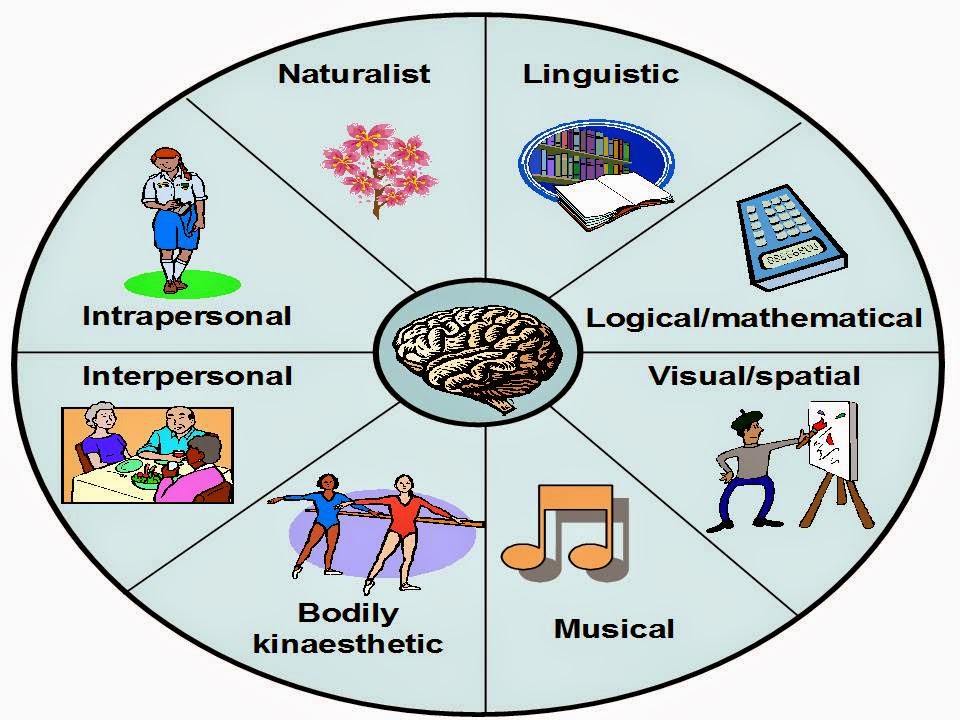
Howard Gardner’s 8 Intelligences (courtesy of Snouts in the Trough)
Let me go through each of these using the slides shared at the workshop. Each “intelligence” is broken down into the activities that you can do, materials which you need, and strategies to implement them.
1) Verbal/Linguistic Intelligence (Word Smart)
The first and most basic, being word smart is a fundamental part of education.
To nurture an affinity for reading, writing and polished speaking, parents can introduce lectures, discussions, word games and other activities to their kids. We should also encourage habits like reading, writing, and conversing (in proper English and mother tongue).
2) Logical-Mathematical Intelligence (Number Smart)
To develop logical-mathematical intelligence in your kid, you may want to introduce brain teasers, science experiments, and number/logic games.
Encourage him or her to think critically, and talk about real life problems that have a mathematical or scientific dimension (eg paying for something and counting the change).
3) Visual-Spatial Intelligence (Picture Smart)
Ahh… Museums are great places to help your kid to sharpen his picture smarts. Activities like drawing, imagination games, mind-mapping, and building blocks (eg LEGO) are also excellent in helping your kid develop “3 D” smarts and to form mental pictures in their mind.
In the example of drawing a fish above, the video revealed that simple shapes like triangles, ovals and circles can be deployed to bring a picture to life. This illustration can also be used to develop a child’s number smartness (eg count the number of triangles in the drawing).
4) Bodily-Kinesthetic Intelligence (Body Smart)
Time to get out of your couches, put down those tablets and smartphones, and go outdoors to play!
Activities like drama, dance, sports, and anything that requires your body will help strengthen body smarts. Ditto for games and activities that require dexterity and manipulation as shown above.
5) Musical Intelligence (Music Smart)
As the parent of a boy who loves music, I can attest that exposing your child to songs, music and MTVs helps. Personally, my wife and I are not quite sure why our kid likes music so much (he sings in the bathroom every day), but it could be our use of “Baby Mozart” CDs at infancy perhaps?
6) Interpersonal Intelligence (People Smart)
In the age of digital devices like smartphones and tablets, it is easy for kids to grow up as loners who prefer communicating with a screen than a real life person.
To prevent this and develop their interpersonal intelligence, group activities like cooperative learning, community involvement and social gatherings help. I guess we as parents should also be good role models.
7) Intrapersonal Intelligence (Self Smart)
This is very much related to helping one’s kids to develop self-discipline, resilience and self esteem.
A good way to do so would include teaching him or her values found in religion, and to encourage greater reflection and introspection.
8) Naturalistic Intelligence (Nature Smart)
Finally, it is good to allow our urbanised kids to be exposed to nature. Beyond bringing them to the zoo or botanic gardens, we could also interest them in living things and natural phenomenon.
A Holistic Multiple Intelligence Plan
To put it all together, Polene suggests that you could develop a Holistic Multiple Intelligence Plan (see below) which outlines each activity to focus on each day.
I suppose the idea here is to ensure that your child gets a balanced and more well-rounded exposure to activities that builds different intelligences. I believe this is especially useful for kiasu parents who may end up over-emphasising linguistic and mathematical intelligences (the academic subjects) over other equally important dimensions.
For more information on this, do contact Polene at the Gifted Academy. Do also let me know if you’ve got any other tips on raising your child holistically.

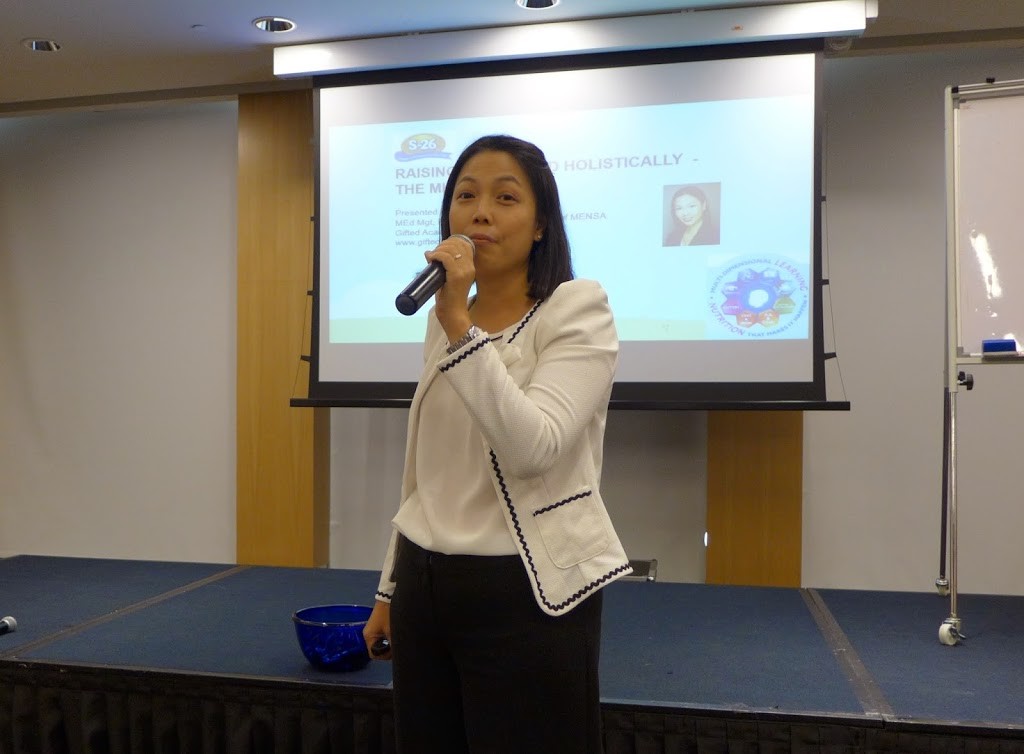
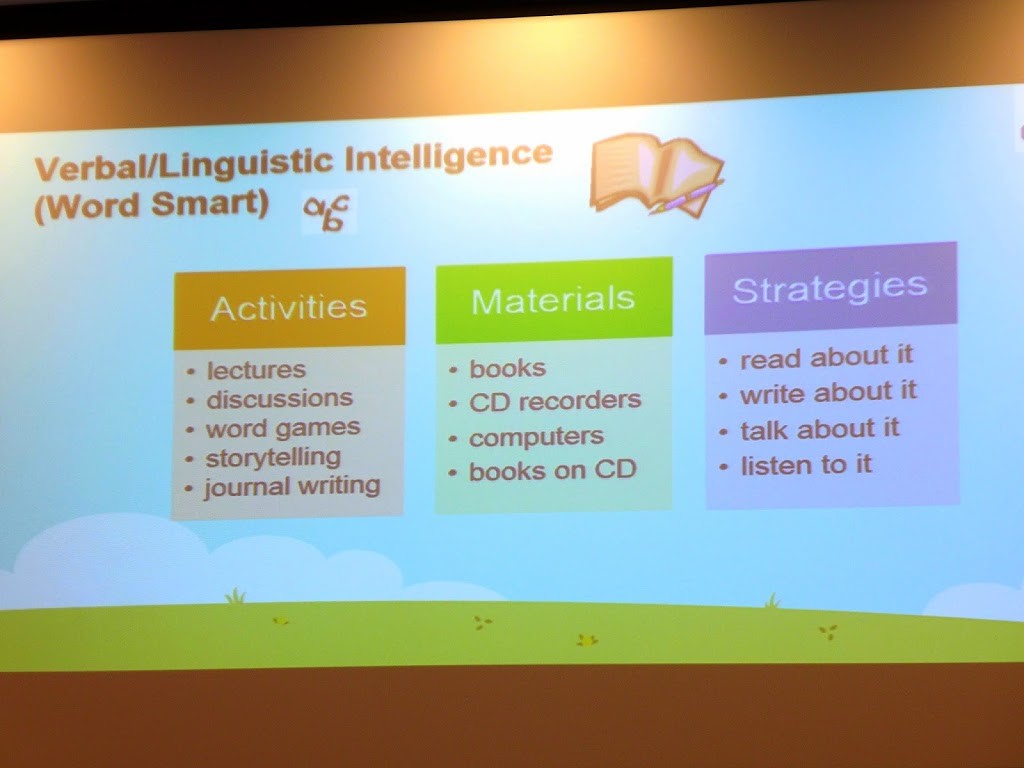
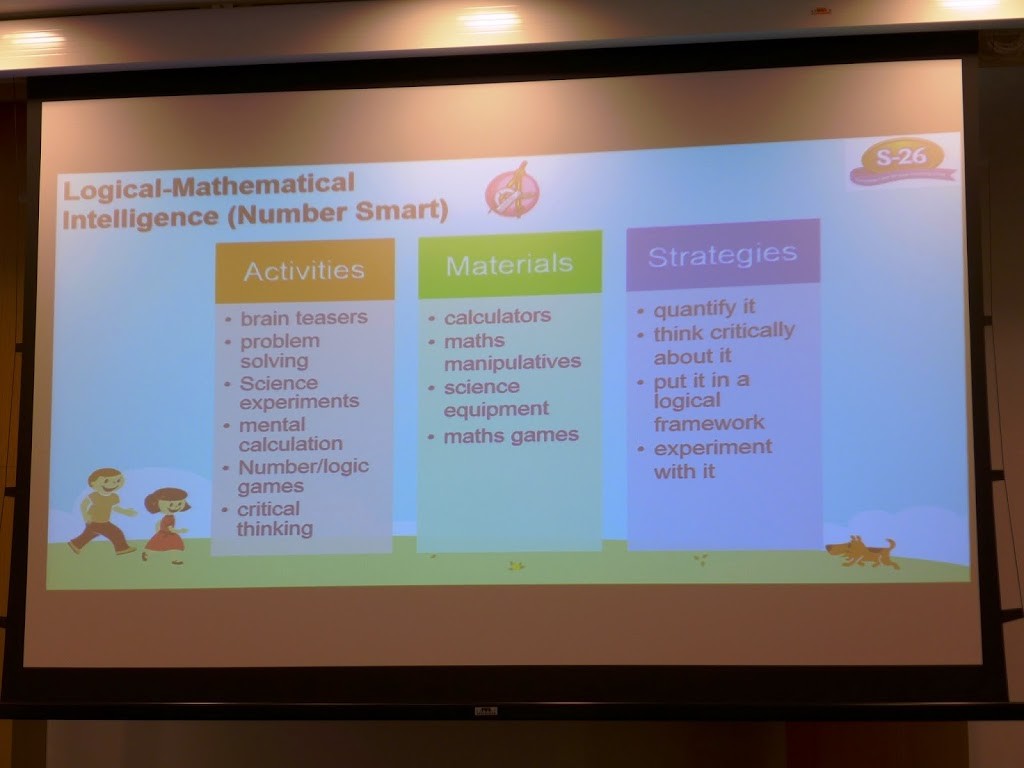
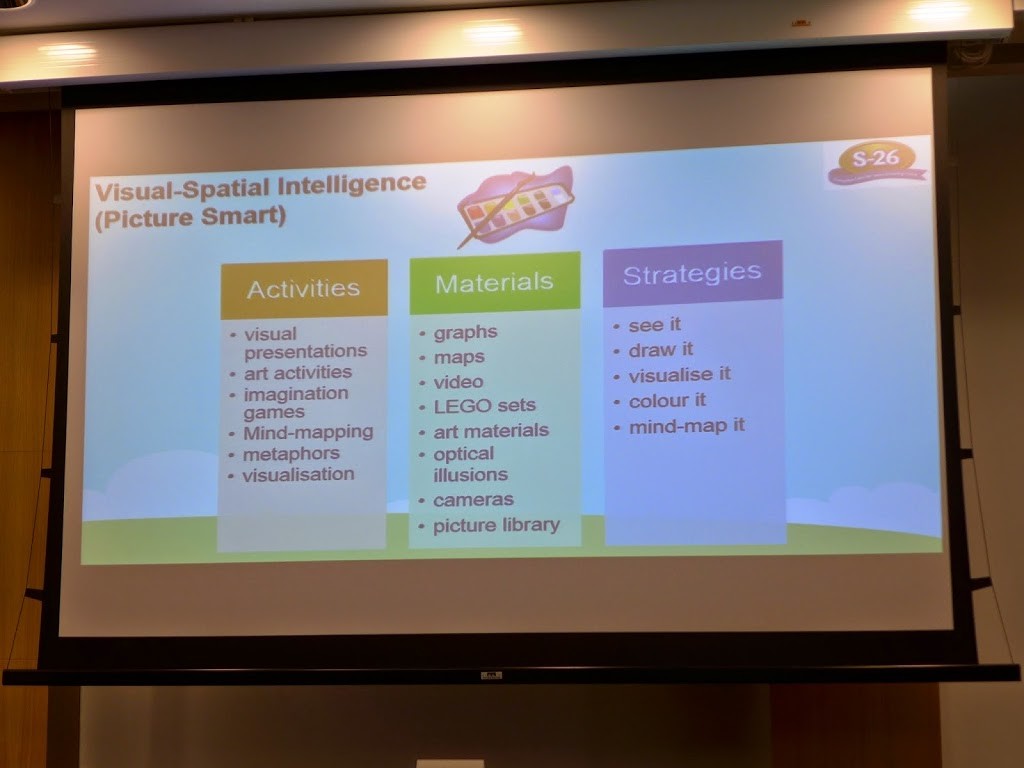
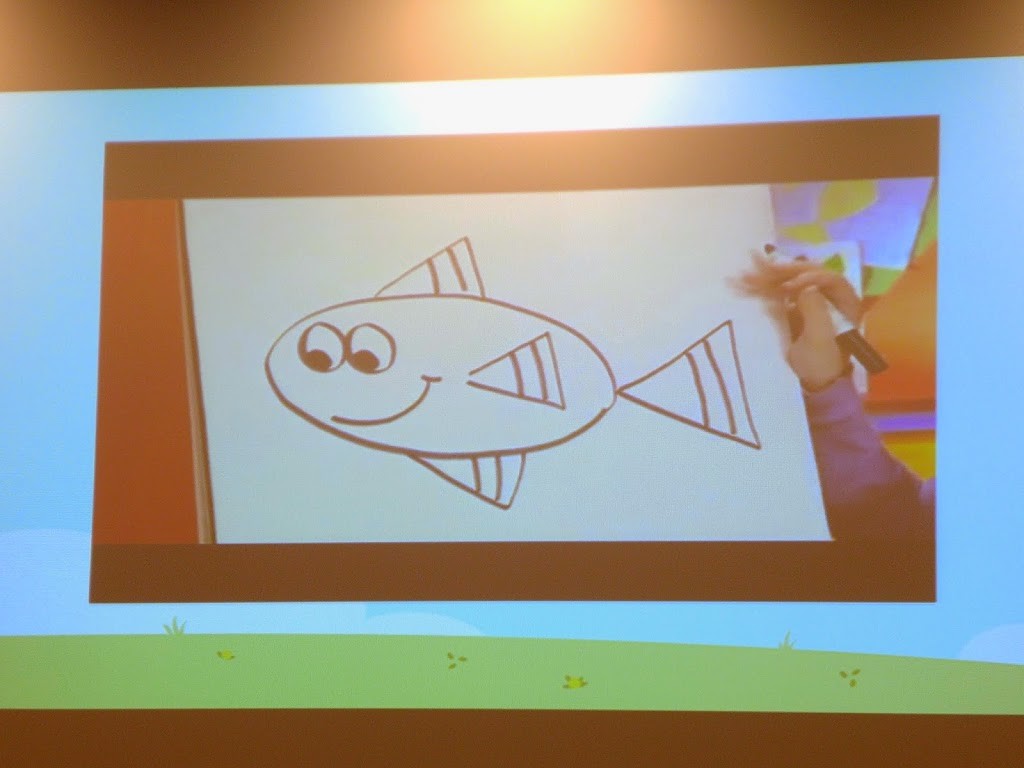
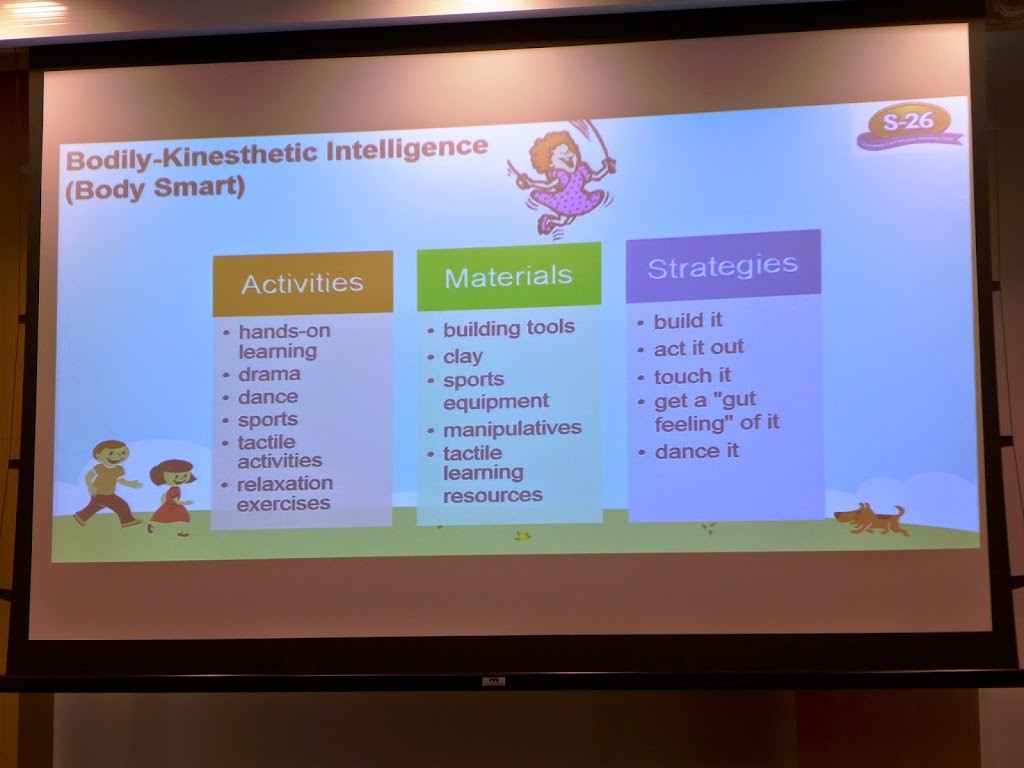
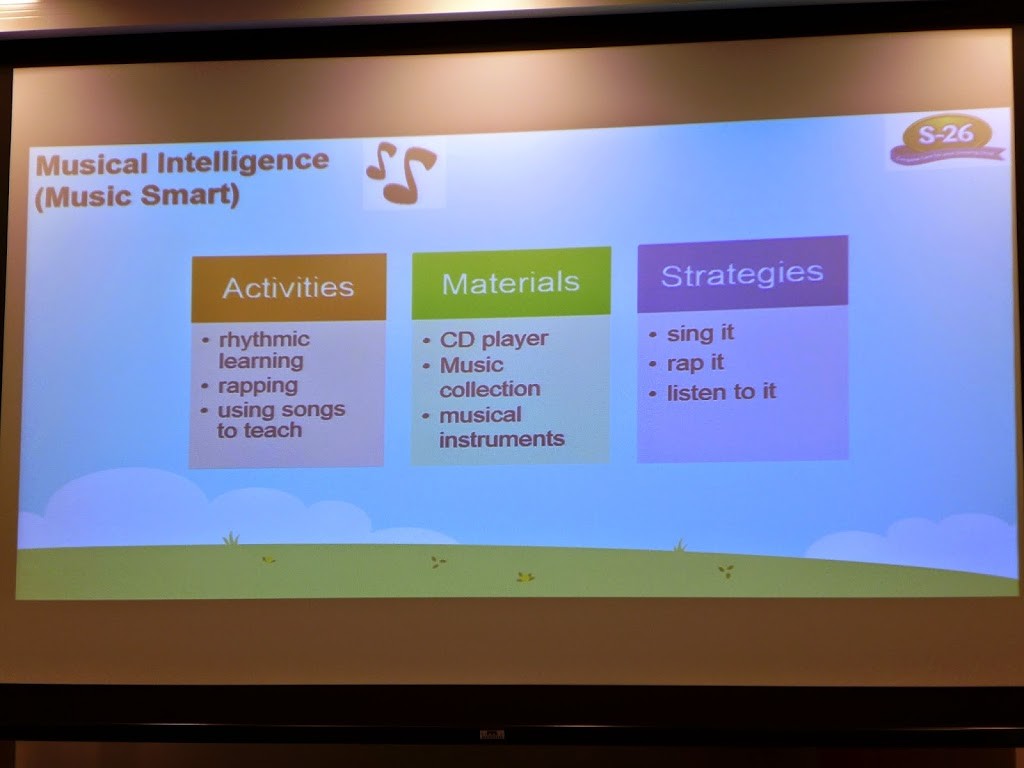
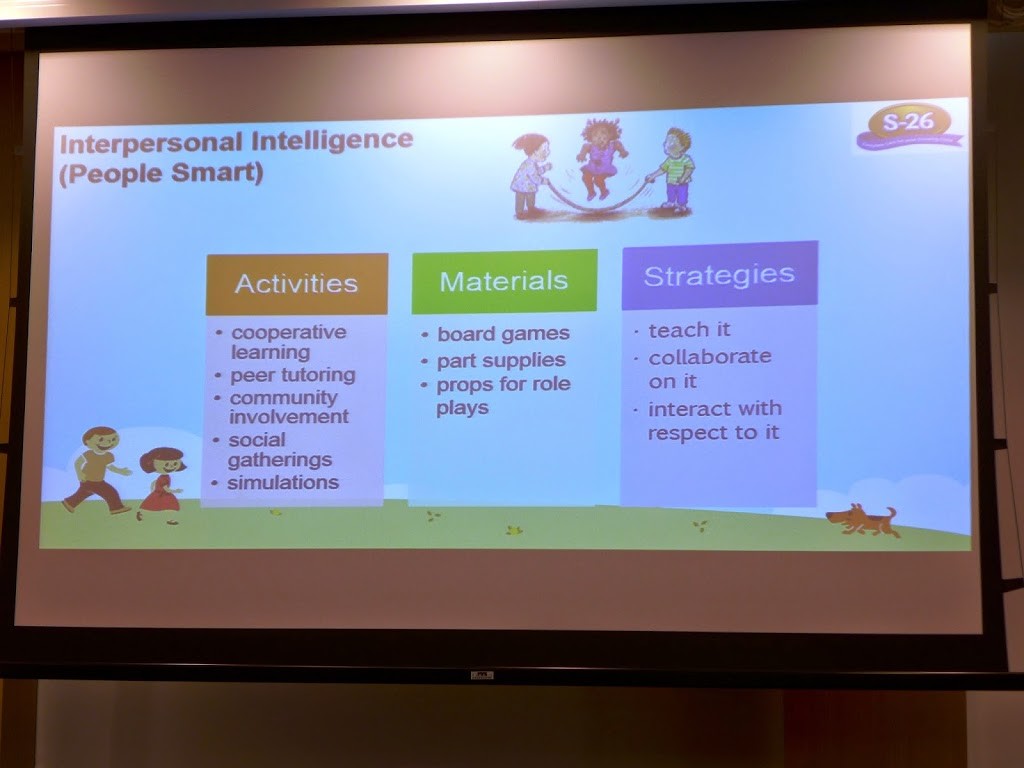
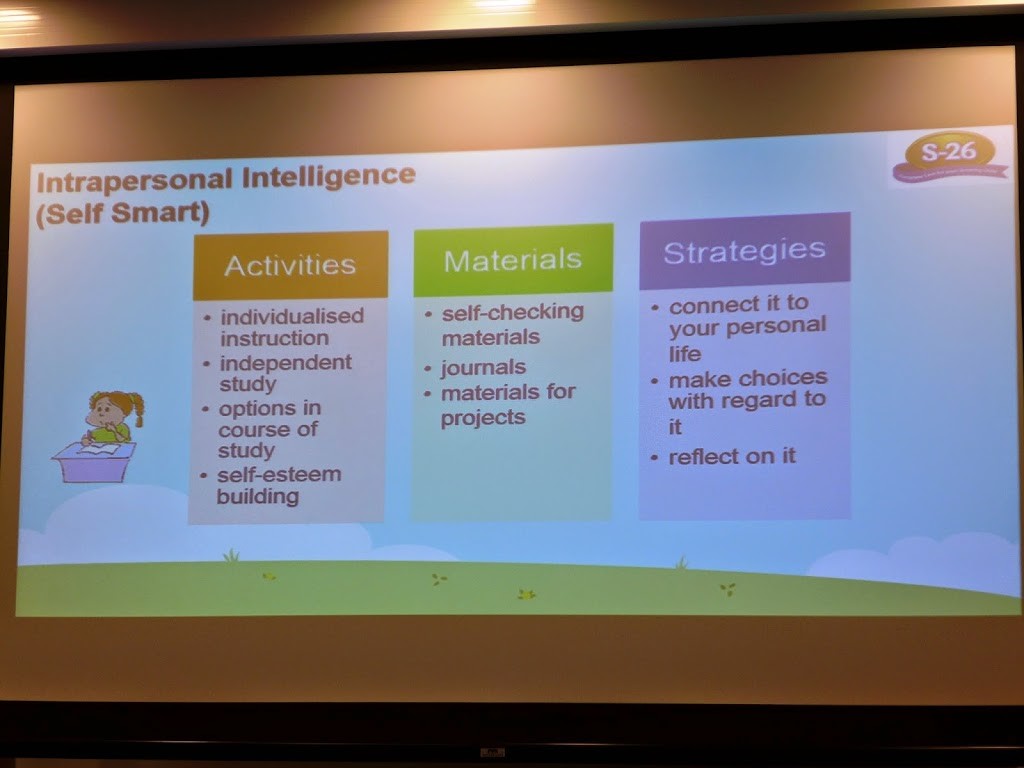
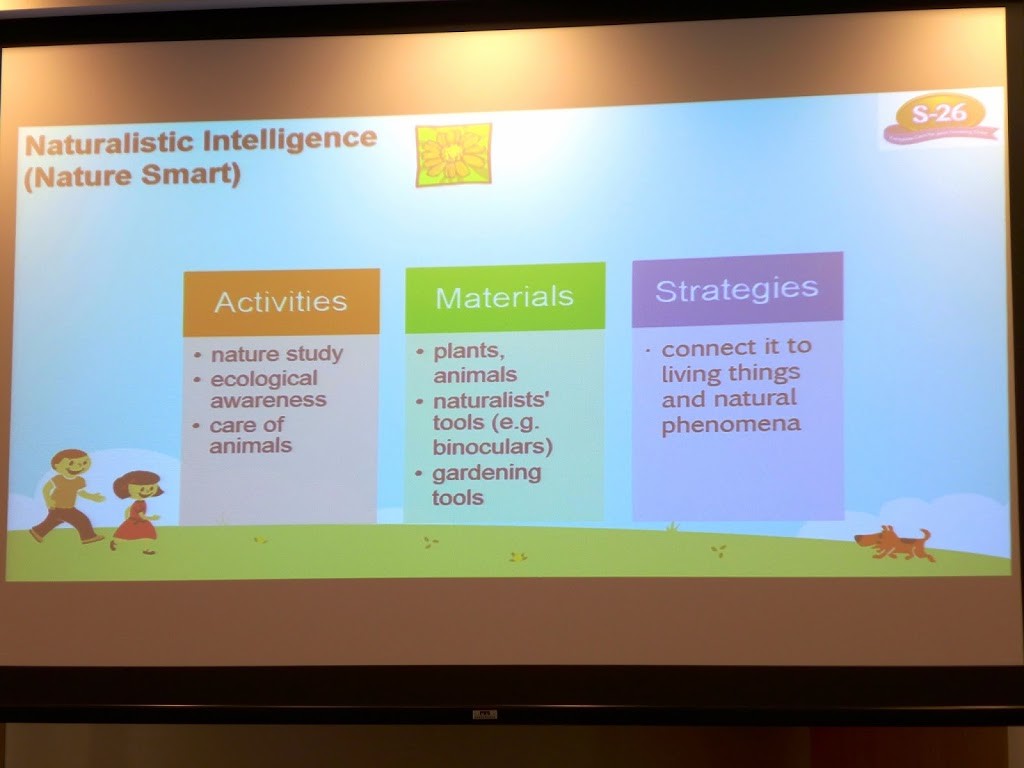
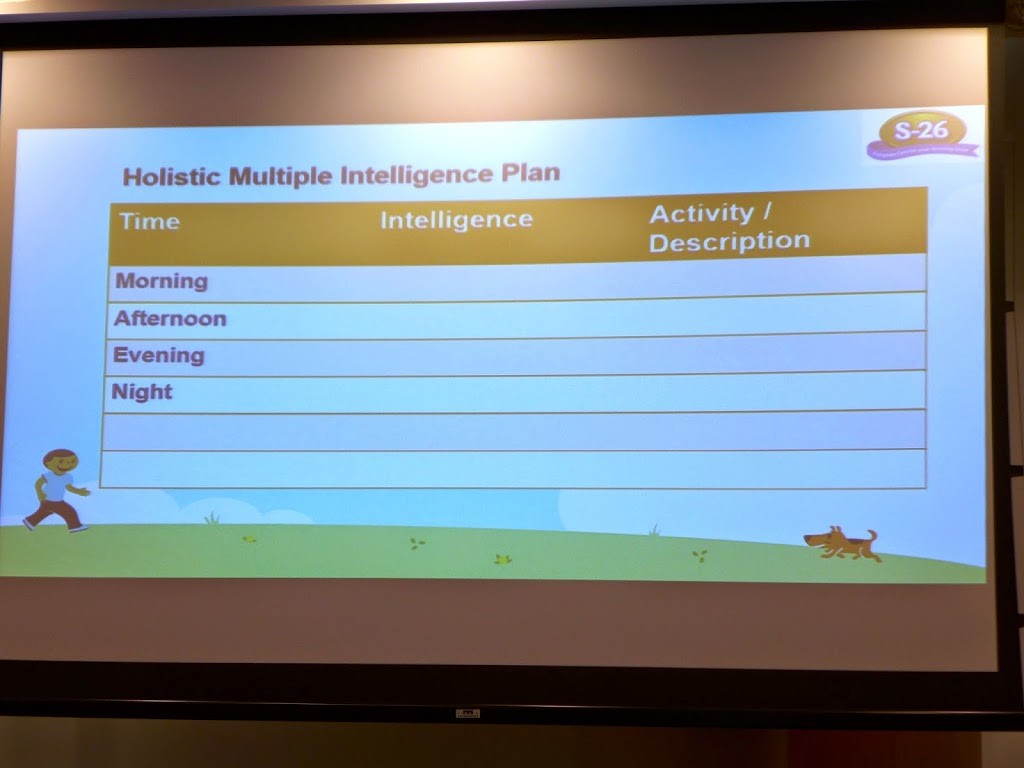
Well written article. I agree with everyhting here!
Thank you so much for your support John. I love what you are doing on your blog and social media sites on parenting too. 🙂
Thanks, Walter!
We have all seen the power of good parenting! And the need to help those parents who want direction.